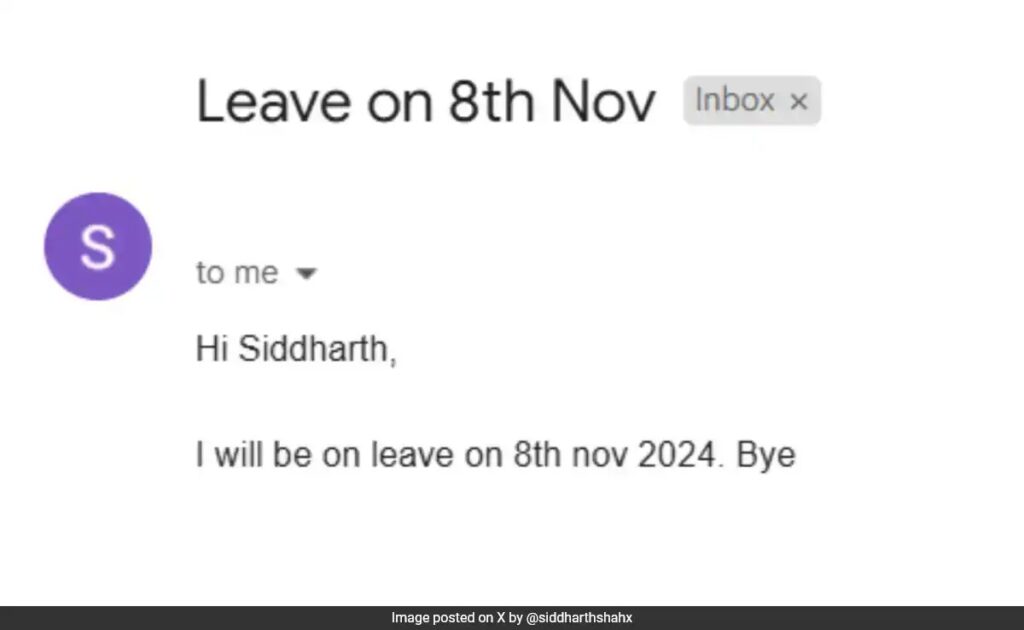
A casual leave email from a Gen Z employee, simply stating “I’ll Be On Leave, Bye,” has gone viral, sparking a heated debate online about workplace communication and generational differences in professional etiquette.
In the age of rapid digital communication, where the lines between professional and casual interactions often blur, a recent incident has sparked a heated online debate. A casual leave email sent by a Gen Z employee, which simply read, “I’ll be on leave, bye,” has gone viral, dividing opinions on what constitutes appropriate workplace communication.
The Email That Stirred a Storm
The email, sent by a young employee to their manager, was unusually brief and informal, with just a couple of lines:
“I’ll be on leave, bye.”
No pleasantries. No formalities. Just a blunt announcement. The message’s simplicity and tone have caught the attention of netizens, many of whom were left astounded by the lack of professionalism in the message.
Generational Divide in Communication Styles
What followed was an online debate centered on generational differences in communication styles. Older generations—especially Baby Boomers and Gen X—tended to maintain a more formal and respectful approach when it came to professional communication, even in the digital age. Phrases like “I hope you’re doing well” or “Thank you for your understanding” were considered standard etiquette in work emails.
However, Gen Z, who are accustomed to quick messages, emojis, and directness, may feel that this kind of communication is outdated or unnecessary. For them, brevity is key, and the use of formality in emails can seem like an unnecessary task.
The Reactions: Mixed Opinions
The viral email has sparked a divided response:
- Pro-Gen Z Argument: Supporters of the Gen Z approach argue that the employee’s email is efficient and to the point. They argue that the traditional formalities in emails are outdated in today’s fast-paced digital world, especially when the message is clear. According to this viewpoint, the employee was simply communicating the necessary information without embellishing it with unnecessary formalities.
- Critics’ Response: On the other hand, critics of the email have expressed disappointment over what they perceive as a lack of respect and professionalism. Many believe that the “Bye” at the end of the email was too casual for a workplace setting, especially when communicating with superiors. Some argue that it reflects a lack of understanding about boundaries, professional decorum, and how to build respectful relationships in the workplace.
The Importance of Context and Boundaries
While it is clear that workplace communication is evolving, context matters. A casual leave email may be acceptable in a laid-back, start-up environment, but it could be perceived as unprofessional in a more traditional or corporate setting. Additionally, the recipient of the email, especially if they are a superior or a client, may expect a certain level of respect and formality, regardless of the sender’s generation.
The key takeaway from this debate is that professionalism doesn’t just depend on the medium of communication, but also on the context, relationship, and expectations of the workplace. While brevity and efficiency are important, they should never come at the cost of respect and courtesy.